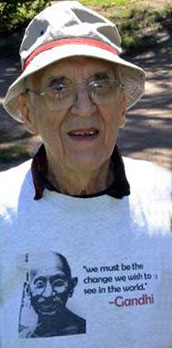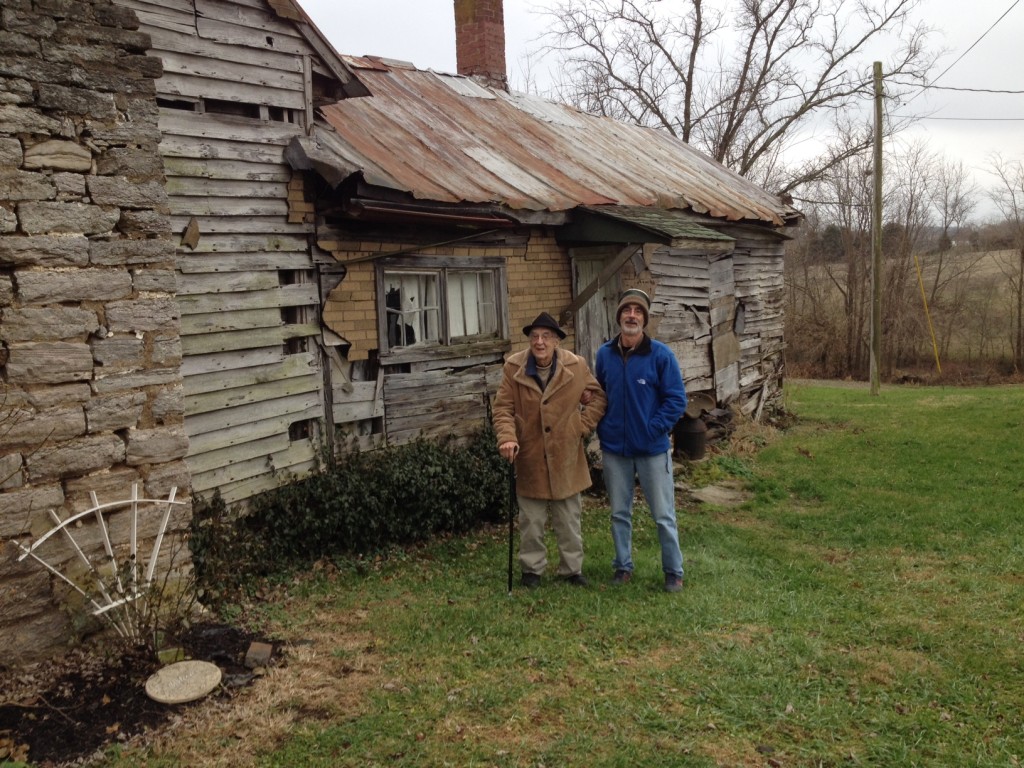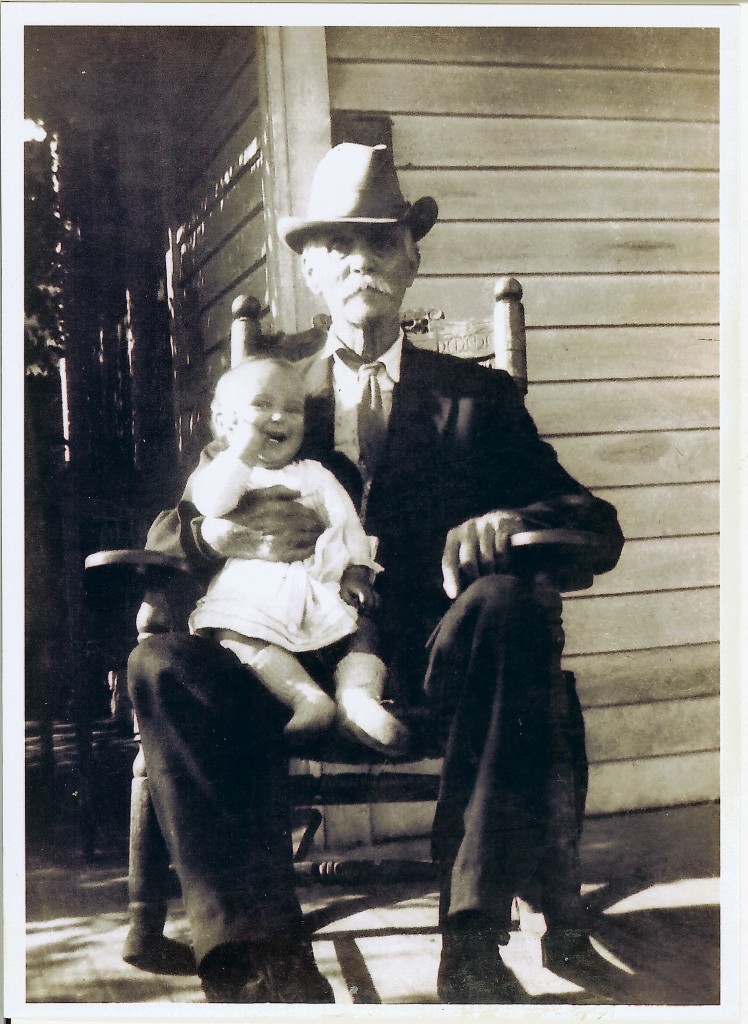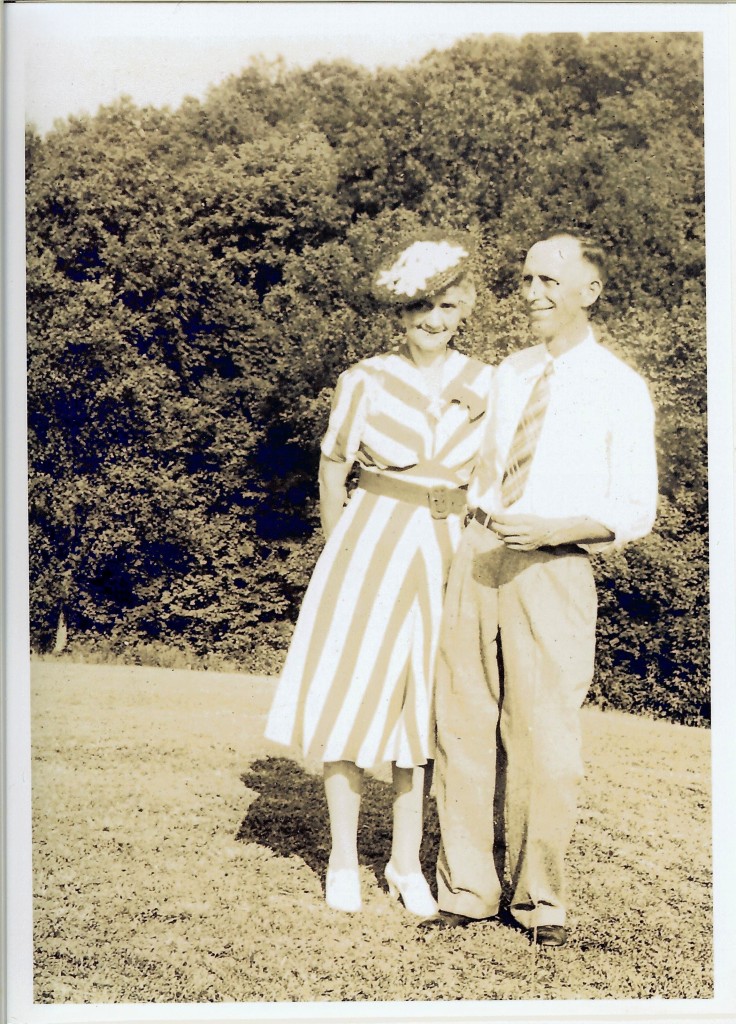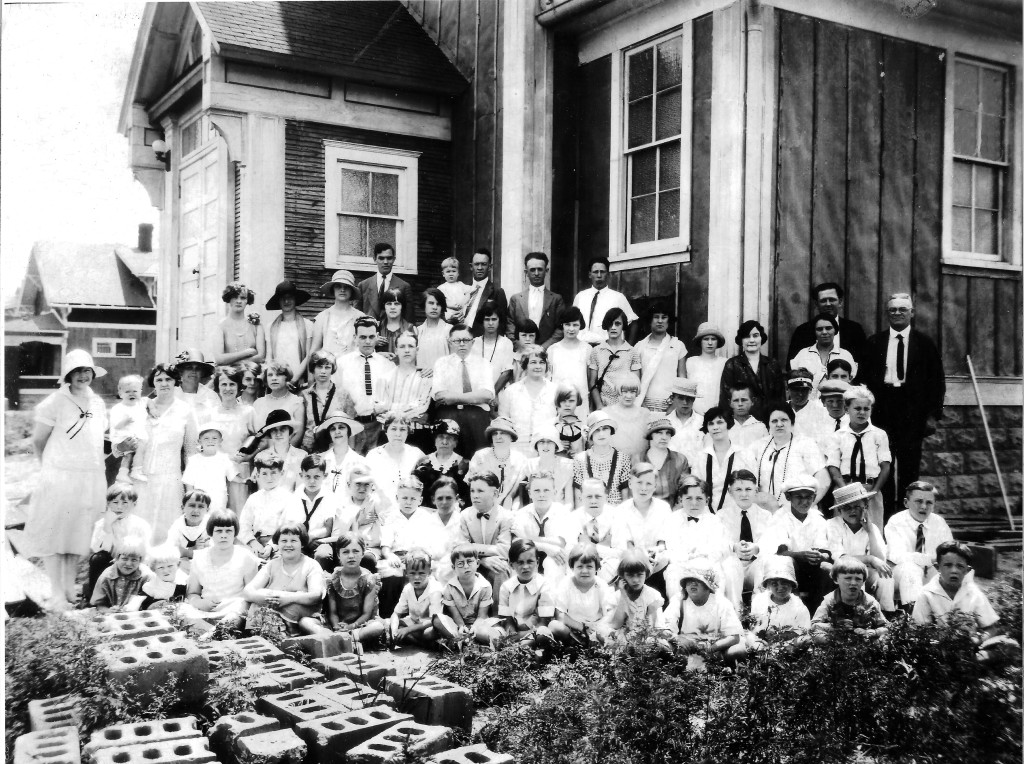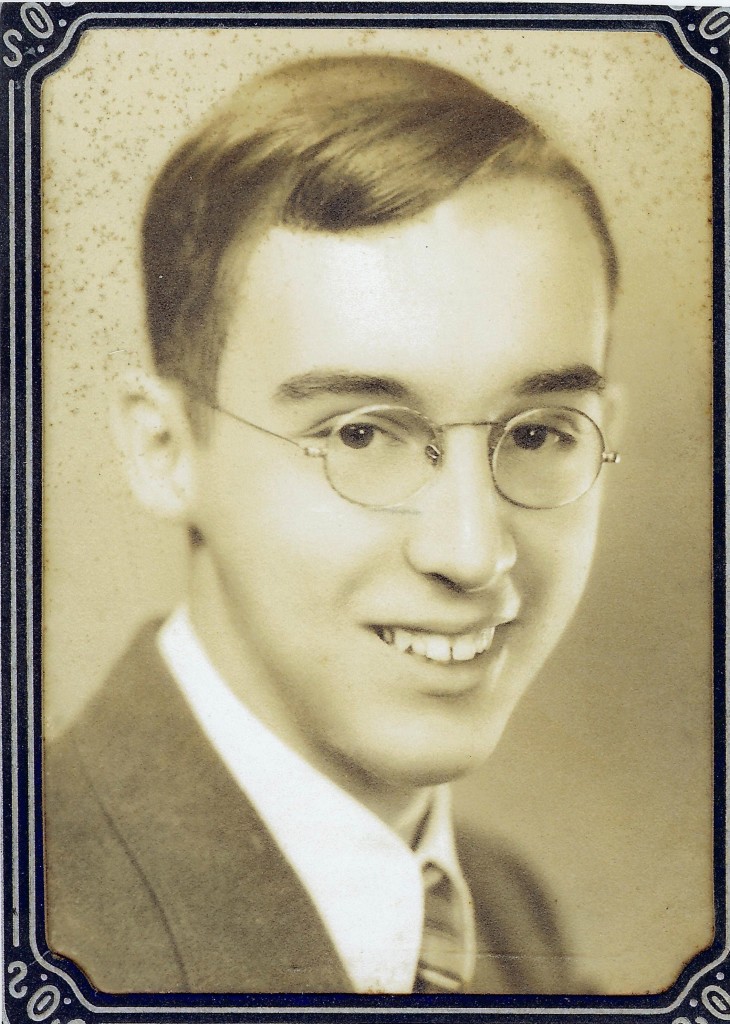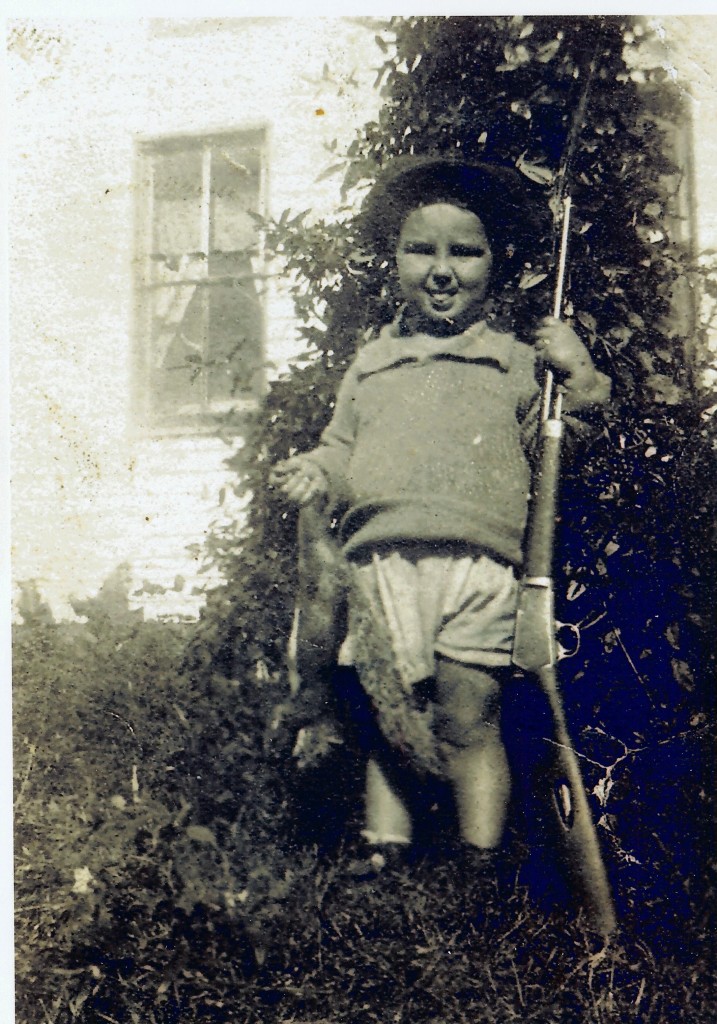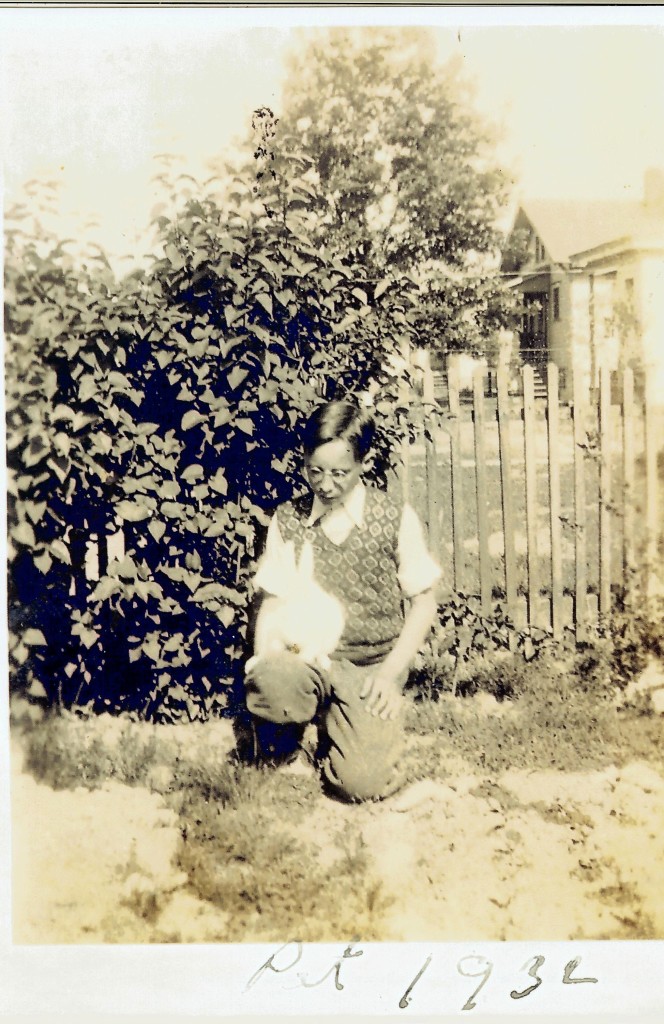Evolving to Earth Ethics: the Beginnings of Charlie Prewitt – Atom Bomb Chemist, to Educator, to Peace Maker
BIOGRAPHIES, 25 Jan 2016
P.K. Willey, Ph.D. – TRANSCEND Media Service
“Each individual’s future is entirely dependent upon the rest of humanity.”
– H.H. the 14th Dalai Lama
Introduction
Over two decades ago, while a doctoral student at the University of Connecticut, USA, I began interviewing Dr. Charles W. Prewitt (‘Charlie’ as he prefers to be called) as part of a project suggested to me by the late Dr. Frank A. Stone. At the time, Charlie was about 76 or 77 years of age; he is now 97. Time elapsed, notes faded, and records were misplaced during my extensive inter-continental research and travels. Returning to the area and realizing that Charlie is still very much concerned and active in his peace work, I have resumed this project.
Since September, 2015, I have conducted a series of interviews with Dr. Charles Prewitt. He was a colleague of my late Father, Dr. C.F. Willey, and has been known to me since my early childhood days. His work for social justice and peaceful conflict resolution, his unwavering stance on the need and potential for world peace have impacted my own life and thinking.
To ensure the integrity and accuracy of my presentation, my interviews were conducted in the presence of his Charlie’s son, Charles Walker Prewitt, known as Walk. My notes and observations were presented to Walk subsequent to the interviews, for correction and verification of information. This article has also been examined by both Walk and his younger brother David Prewitt. Walk’s presence in the interviews also served to help Charlie remember family stories, dates, and other details.
Charlie’s life has been long, thoughtful, colorful. This first article on Dr. Prewitt restricts itself to specific inclinations that Charlie’s upbringing and character were marked with, from childhood up to meeting the love of his life, his remarkable wife, Virginia Stewart, when he was just 18. In just a few years, he was to begin mandatory work for the US Government on the Manhattan Project, which contributed to the outrageous human, environmental, and political catastrophe of Hiroshima and Nagasaki in Japan on August 9, 1945. Charlie’s outspoken Earth ethical responses to this horrific use of human intelligence and endeavor have continued to this day.
Dr. Prewitt went on to travels and extensive postings in Asia, through Burma, Afghanistan, and Pakistan, throughout the 1950’s and ’60’s. From then until now, he has engaged himself and his family, his friends, and associates, in service to the ideals of world peace, human brotherhood, and harmony. We shall discuss his Earth ethical unfolding during these phases in future articles.
In hindsight things seem clearer, hence observations of the paths we have taken, the experiences that shape our outlook towards our ideals, or away from them, are of vital importance. The examination of Charlie’s life through the lens of Earth ethics philosophy and developmental psychology yields much food for thought about what is important in life; seeds of pure ideals and intentions toward them may create awareness in us of what our purpose here is, and how it can be best served. Making peace with ourselves is a necessary first step in making peace with the Creation.
Common Sense, Mental, and Moral Health: Philosophical Accord of Earth Ethics
It is necessary to provide a description of a new way of examining the life of individuals, groups, communities, and even nations: in light of adherence to being, as part of a vast interdependent whole, that is experienced and known through ethical interaction with pure ideals.
In my last article, I discussed Gandhi’s advancing common sense, the necessity of devotion, and the role of death in that advancement. Individuals, groups, societies, nations, either advance or stagnate in terms of their own awareness and admission, and thereby adherence, to common sense within them. The universal phenomenon of common sense is the practical application of conscience that works through the mind in conjunction with environmental ecologies and realities.
It’s time we brought out a common sense understanding of what genuine mental health is. Real mental health is inextricably bound to the manifestation and adherence to universal ethical ideals and morals – the means one chooses and employs to inwardly align oneself with those ideals. That there is a general recognition of this fact is seen in the unspoken and public turning away, or shunning, of those who may have insinuated or claimed they were following pure ideals, but whose personal moral standard simultaneously appeared to have gone counter to that claim. Our unspoken but universal common sense holds moral integrity as part and parcel of genuine mental health and human goodness.
This is mental health: a mind and life guided by noble ideals, touched and known through conscience, supported through the employment of moral integrity, manifesting goodness and beneficence. To encounter a person who sincerely strives for such fidelity, is to come away inspired, to experience renewed faith in the innate capacity of all human beings to have an inner reality in light of eternal verities of righteousness, and noble human striving, as being an evolutionary reinforcement of our own truest nature, our ethical instinct.
Common sense and morality are easily manipulated and confused by media distortions. The media has the power to obfuscate our intentions. As such, the clarification of common sense is assisted by study and understanding of the laws in operation in our inner, social, and planetary life. Through ethics and morality one gains a clearer conception of universal ideals that guide one into harmony – Earth ethics.
Dr. Prewitt’s life is a good example for examining the role of Earth ethics in awakening sensitivity towards people and animals; for finding awareness of intention, its distortion and re-clarification; for seeing the expanding or contracting influences of love. The ways that conscience was to work in Charlie, with the assistance of many coinciding ethical factors, guided by his own yearnings, enabled him to eventually create his own role in sustaining, protecting, and furthering awareness of the one life we are all part of.
Charlie was born on October 25th, 1918 in Depauw, Indiana, USA, just four years after Gandhi transplanted his Earth ethical experiments from South Africa to India. Charlie learned of Gandhi in his twenties and still admires him greatly; Gandhi’s influence as a voice of peace, love, reason, and common sense resounded in human consciousness over the Earth. There was an awakening of hope, that We The People could turn our human boat towards genuine sanity. Gandhi was a man who did not claim to be Christian, yet was more ‘Christian’ than most with his practical demonstration of the ethics found in Christ’s Sermon on the Mount.
Charlie grew up in Clarksville, Indiana, across the Ohio river from Louisville, Kentucky. This area of the USA is inhabited largely by people with ties to the Appalachian Mountains. Colin Woodard, author of American Nations: A History of Eleven Rival Regional Cultures of North America (2011), describes the different groups of white people that came to our refugee and immigrant nation, the ethics they brought with them buried deep in their bones, its expression, and its enactment upon environment, society, governance in our lives today. His investigative research caused him to identify the area Charlie Prewitt was born into as ‘Greater Appalachia’.
“Founded in the early eighteenth century by wave upon wave of settlers from the war-ravaged borderlands of Northern Ireland, northern England, and the Scottish lowlands, Appalachia has been lampooned by writers and screenwriters as the home of hillbillies and rednecks. It transplanted a culture formed in a state of near constant danger and upheaval, characterized by a warrior ethic and a commitment to personal sovereignty and individual liberty. Intensely suspicious of lowland aristocrats and Yankee social engineers alike, Greater Appalachia has shifted alliances depending on who appeared to be the greatest threat to their freedom. It was with the Union in the Civil War…”[i]
At 97, Charlie now looks back at his life experience in terms of where he erred or was caused to err from righteous human understanding, how he was prevented from exercising a common sense guided by noble ideals, and what the influences were that helped him to genuinely grow beyond restrictions and contractions his upbringing presented him with.
Earth Ethics for Accord and Harmony
An advancing school of thought, Earth ethics carries the admission that life has meaning and reason, as part of a singular reality. To understand that purpose, to actively seek to participate in one’s role within the one, is to secure happiness, meaning, and genuine success. An individual who carries this perspective will find unique and creative ways to respond to their life experience, will know a happiness that comes of bringing that life and intelligence that is within them to bear upon environment and relations in numerous aspects without. Such an effort by any person, will, to some degree, assist in the amelioration of suffering – in human, animals, to the entire flora and fauna of creation. As such, Earth ethics offer a means for philosophical accord and psychological healing.
Our one life is so grand, that subtle and inherent attributes of the mind must be cultivated in order to perceive and evolve towards the ideals of Earth ethics. The qualities that enable increasing awareness of these ideals include deep attention, an inner listening and concentration, the magnetism of loving devotion, deep sincerity, yearning, capacity for absorption, and more. The ideals of Earth ethics reside in our deepest longings and common sense, and point to the laws that govern all life.
The deprivation of elementary sources of Earth ethical ideals such as natural relationships with Nature, wholesome parental love, social acceptance and respect, can obscure an individual’s perception of their own self-intentions. This is most often temporary, and can be overcome by adherence to Earth ethical ideals. This can be seen in the lives of many, often those who (and perhaps because of), though subjected to a difficult and painful childhoods, have become more strongly aware of the ethical qualities they value: truth, love, respect, and justice. Examples abound: this awareness was exhibited by Eleanor Roosevelt, wife of the 32nd US President, F.D. Roosevelt, when, at the age of 14, she wrote her inner observations in her diary:
“No matter how plain a woman may be if truth and loyalty are stamped upon her face all will be attracted to her.”[ii]
We look for evidence of sensitivity towards noble ideals, and expanding sympathy and empathy; moving from the small sense of individual centered awareness to an increasing sense of self-integration budding into compassion for the others. There is a natural response. We evolve to see our cherished selves, within not only people, but the entire Creation. Examination through Earth ethics takes into account the limitations of historical context, and hails the bursting of constrictive bonds that deny the truth of our one life; interdependence, respect, and therefore, justice.
In psychological evolution towards harmony, awakening to conscience and its employment of moral tools begins. The choice of moral tools is entirely subjective, and is called up and delineated by the context and ecology of the person, group, or circumstance. Intentions and their clarification is critical. For example, a person may have abused their body and mind through drug and/or alcohol use. Developing moral strength through an increasing relationship to conscience, becoming able to cease abusing oneself, is a first step in genuine healing. The structures of context in environment and society may assist or not in that evolution.
On Charlie’s paternal side, Great-grandmother Jennie Perry was held in high regard in the community, which was slave-owning until the end of the civil war. One pre-civil war story of young Jennie Perry demonstrates both her personal humanity and her courage, at a time of socially accepted human-to-human indecency, to the point of enslavement. It further shows the behavior etiquette norms that the presiding white society held itself accountable to. Charlie told the story:
“The slaves had been giving the farmers a little trouble. They would walk off the farm, absent themselves as they could. The farmers passed a ruling that no slave could leave the farm without written permission. Being in charge of local governance, they gave themselves a respectable title, Government Patrollers’ and would go around, often thrashing to near death or death, any slave that had gone off the farm that claimed him. These patrollers became known as ‘Paddy Rollers’.
“Jennie had a woman slave, whose husband was on the farm next door, down the hill. The husband came to Jennies’ house wanting to see his wife, but didn’t have written permission.
“He was visiting with his wife in one room, who was also keeping an eye out for danger. The wife soon called out to Jennie ‘There are white men coming up the hill!’ Jennie hid the visiting husband in her attic, which had a tiny room within it.”
“The Paddy Rollers came up to her home. ‘We want that N***!’ came their blood lusting bellow.
“One man entered Jennie’s house, and began looking for the man he was certain was there. He went and lifted up the lid of her flour barrel in the kitchen. [This was against all social protocols of decent acceptable white-to-white behaviors. He was now uninvited, violating Jenny’s home and person. The fact that he intended to beat or lynch another human being was not an etiquette issue.]
“At this point, Jennie was standing in the doorway to her kitchen. She told the Paddy Roller, “You know I’m not hiding no N*** in my flour barrel.’
“The Paddy Roller told her that he knew the man was in the house, that she was lying. He started to push past Jennie to search the house.
“Above the doorway to the kitchen on the wall was a Kentucky long-rifle. Jennie reached up and took it down. It was double loaded, and had two triggers: a set trigger and a hair trigger.[iii] She pulled the set trigger, and rested her finger on the hair trigger.
“The Paddy Roller stopped in his tracks and looked at her. ‘Ma’am, I believe you would shoot me,’ he said, and abruptly left.”
Word spread quickly through the proverbial village grapevine. Long before Sunday, everyone knew that good Jennie Perry had been grossly insulted, physically accosted, and her character slandered by being accused of lying. Such a smear could not be disregarded.
“Come Sunday, the Paddy Roller came to church with his girlfriend. After church, a group of men met him outside. Assessing the situation, the Paddy Roller gave his gold watch to his girlfriend. The group took the man out to the woods on his horse, put a noose around his neck, hit the backside of the horse. The horse took off, and left the man swinging by his neck.”
Charlie concluded with, “This event was the only known incident of a white person being lynched around anything to do with slavery.”
At that time, the killing had more to do with the social perception and standing of Great-grandmother Jennie Perry than the life of a black man. Great-grandmother Jennie Perry was fearless when it came to ‘standing her own’ when social norms did not mesh with her own common sense. In another incident, one day, she went down to the creek and found a young woman crying. The girl planned to suicide. She told Jennie that she was unmarried and with child, and that the father-to-be had abandoned her. She felt it was a social stigma too difficult to bear. Jennie took her into her home.
It was perhaps incidents like these, that showed the community at large in Clarksville that Jennie Perry followed the golden rule of “do unto others as you would have them do unto you”. This perhaps made any transgression of her honour untenable to the white community members. She was cherished because she herself was guarding and being obedient to the law of human love, where others were afraid to do so in the face of brutality or politically correct behaviours. She was being true to the ethical instincts of human nature, that in their common sense, all people know they have the potential to be.
As Gandhi noted, “Fearlessness is the first requisite of spirituality. Cowards can never be moral.”
As a child, Charlie could have taken the historical family stories of Great-grandmother Jennie Perry’s intentions in her bravery a number of ways, among them that she intended to defend her personal honor, or that she stood up for the life of an innocent human in the face of politically correct inhumanity. This kernel instruction could grow with Charlie to impress upon him either the necessity to defend honor even to the extent of shooting someone, or to foster in him a regard for the basic responsibility to defend the defenseless. He also learned of her conviction that common sense was of greater importance that social edicts. Clarifying intention is critical for Earth Ethical development. This story’s retelling in family life brought home confirmation of the importance of standing up for all lives as part of Charlie’s family ethea.
The Need for a Philosophical Standard based upon the Reality of Our Interdependence
We are entering an age of wider global awareness. At the same time, we urgently need to find a foothold of balance on the precariously sheer precipice directly facing us: the total destruction of Nature, the unstable future of human civilization. The future of humanity is literally in the hands of our children and youth today. Focusing on the most important task: the raising and protection of our planets’ children, enabling them to ethically deal with the consequences of actions committed by generations before them, is a responsibility incumbent upon us all.
The economic systems held out to us as necessary, vital, real, and the education that promotes these systems, have veered far from truth and reality – from common sense. All our technological advances have not yet been able to solve our social distresses. Through technology and economic systems divorced from planetary realities, we are creating young people who suffer an increasing and greater alienation, a disconnection with themselves, with others, with Nature. Governments and socially concerned agencies produce more and more research which indicates that the mental health and brain function of our youth is in jeopardy from excessive time on computer screens and the internet.[iv],[v]
The philosophical unity we need to achieve cannot come to us from without, via the media or educational structures, but must be brought out from within us: our common core ideals, through raising social standards to allow their expression, and creatively developing them from individual to community levels.
Reach In, Teach Out
The people who inspire us, who touch our hearts and minds with awe and wonder by adhering to a universally acknowledged truth within themselves, are the beacons towards real mental health. They use ideals as guides, and develop a common sense exercise of morality to bring themselves into harmony with those ideals. In doing so, they have powerful environmental effects and influence. They are people others love to be around, by virtue of the degree of integration they have achieved with the Creation. The degree of harmony with ideals that they are able to express, the sincere respect and consideration that they offer to all on their path, both inspires and relieves us, with its seeming courageousness.
Gandhi’s recorded adherence to universal ethics, his fearless fidelity to conscience and applicability of common sense, make him an eminent psychologist of Earth Ethics. He was never able to claim success or total integration with all life, although he yearned for it. However, as an aspirant to that goal, he left an enormously prolific record that leaves a vision of what can ultimately be termed genuine mental health – a person seeking a dynamically loving harmony with all creation. His efforts along the way were beneficial to society, those around him, and himself. The moral means that Gandhi employed to serve the vision he carried of earth ethical ideals, still inspire millions. Others too, have contributed to our world wide repository of understanding, succinctly discussing their psychological progress towards an ethical harmony, such as North America’s Peace Pilgrim.
The psychologists of Earth ethics are as countless as the people who have made great efforts in their lives to achieve genuine harmony, who love and support life. Our teachers of this school can be found in some aspect in the vast majority of human lives. As we reach in and up to be true to our ethical instincts and inner ideals, so do we teach them to one another.
The Evolving Earth Ethical life of Dr. Charles W. Prewitt
Today the long and beautiful journey of Charlie’s developmental evolution towards an ever-increasing integration and harmony with life continues. Charlie’s life is notable for its unfolding from an upbringing in what was then a small conservative white community in southern Indiana, to a global citizen and teacher.
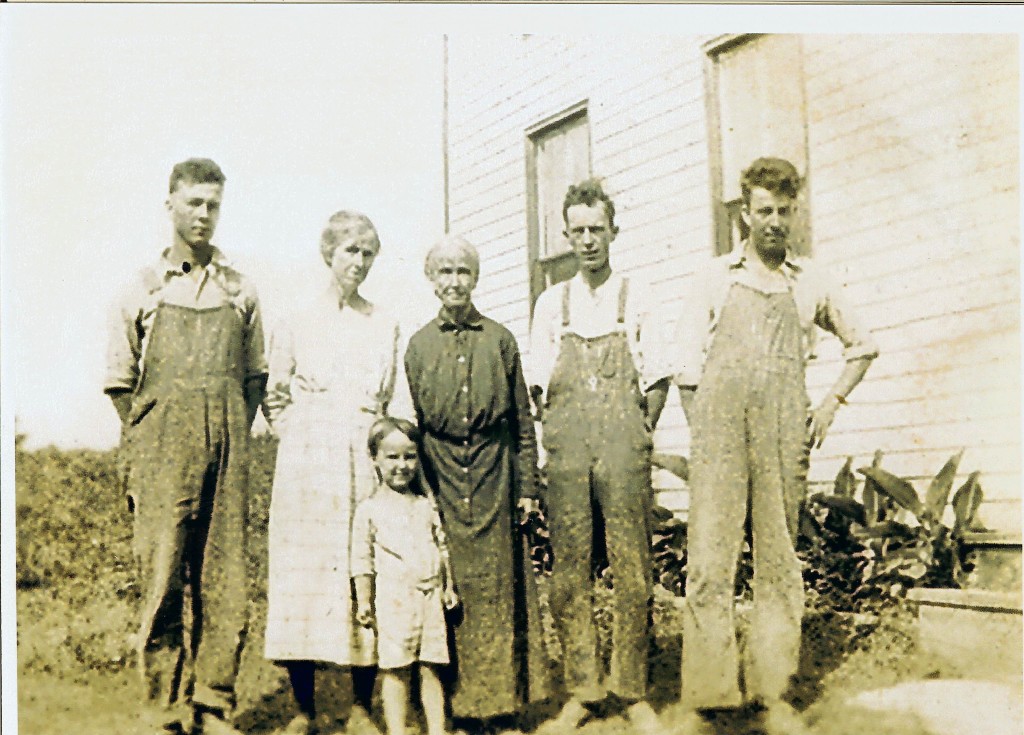
Left to Right_ Charlies paternal Uncle Fred, Grandmother Jenny Prewitt, Great Grandmother Jennie Perry, Dad, Uncle Ralph, and Charlie in front
Charlie’s maternal grandparents, the Walkers, were to have a strong influence upon him. Grandfather Walker was a medical doctor, who used his medical education to help the poor rather than seek riches, and consequently never became a wealthy man. Many people studied medicine as an inner calling, their way to be part of the larger picture of helping society. Doctors then were highly regarded. Insurance, pharmaceutical, and liability pressures had not yet corrupted the medical profession.[vi] Grandfather Walker exhibited an attitude of genuine concern and friendliness towards all people.
Charlie’s father, Charles William Perry Prewitt, came from a farming family; he was a farmer. He had two brothers: Ralph and Fred. He saw in Dr. Walker’s daughter, Laura Algernon Walker, a bride of potential wealth and social standing. He did not know that her Father’s practice was in the poor sections of town, that the amassing of riches was not a life goal for the Walkers. He pursued the young and beautiful girl, and despite his future Mother-in-law’s exceedingly strong objections, won her heart and married her. He was to later tell Charlie that he had two main reasons for marrying Charlie’s Mother: (1) she was a virgin, and (2) she came from money. He advised his young son, “You marry for the money and learn to love them later.”
The background and family cultures of the couple were different. Mother Laura came from an educated, studiously inclined family, her father Dr. Walker was socially concerned. While the families’ ideals connected on social service, other tempermental fabric contrasted with that of Dad Charles. Dad Charles was a more easy-going rugged outdoorsman from a farming family; good with guns and hunting, down to earth, multi-talented and capable, with a wide circle of friends and community spirit.
Poverty and a certain degree of hardship can be a blessing to experience in childhood. The young mind learns quickly to discern what is necessary and real, and what is not. A degree of poverty helps also in the cultivation of simplicity, the conscious reduction of material wants and imagined needs.
The Prewitt family was poor and conservative in many respects. Charlie remembers that as the Great Depression years wore on, both his parents would give him (their only child) any meat dishes that the family had at mealtimes, doing without for themselves. It was an early lesson in adult sacrifice for the sake of the child. At the same time, their love-sacrifice for him made young Charlie equally responsible to try his best to understand their expectations of him, and to heed their advice.
Mother Laura Prewitt was very conservative in dress and in matters pertaining to sexuality, to the extreme point that the reproduction and progeny of family pets was an avoided subject. Well into the 1950’s she clung to a rather Victorian style of dress: high collars and ruffles with long hems.
At times, relations between maternal grandparents, as well as Mother Laura Prewitt and Dad Prewitt were so strained that Grandmother Walker would leave the room if Dad Prewitt entered. Frustrations grew to such a point that Dad Prewitt even tore up the marriage license.
In her adolescence, Laura A. Walker had a brother who had gone to St. Louis, Missouri, never returned, and no one ever heard of him again. The maternal grandparents were naturally deeply concerned for their few family members. Early on in the marriage, the new Mrs. Laura Algernon Walker Prewitt made so many trips back to visit her father and mother that Dad Prewitt bought the house next door to theirs in Clarksville, so his in-laws could live close by. Thus, when Charlie arrived, he was surrounded by adults and grandparents that had deep love for him, and had the time to take an active role in his life, particularly Grandmother Walker.
Dad Prewitt’s brother Ralph had two daughters. Charlie, being the only baby boy in his lineage as well as the only grandchild in Dr. Walker’s lineage, was lovingly adored and doted on.
Parenting styles were also different. Charlie remembers as a tender youth that, “One time, I was in trouble. Dad was going to step in, but Mother said, ‘Let me handle him.’” From then on, his father was not involved in disciplining Charlie, and indeed, the love of his maternal relatives was so profound, that there was little need for it. Charlie recalls walking into the house one day, and his Grandmother swooped him into a hug, saying, “I love you too much!”
The development of a child’s self-confidence, and ability to be empathic towards others is greatly impacted by the founts of love that a child experiences in babyhood and youth. Love rules without a whip. Love guides, effortlessly, like a boat sailing down a river. The guidance through love can be towards expansive goals, but, also towards contractive.
Constricting Love through Othering
To strengthen their identity, groups often ‘other’ others. Othering can become so acceptable to the group identity that killing, war, torture, discrimination, racism, prejudice, and all kinds of deeply disturbed abnormal behaviours towards the ‘othered’ can be made to seem normal to the mindset of group members.[vii]
Looking back, Charlie sees himself coming from a deeply racist and conservative background. His entire childhood community experience was with white people:
“In Clarksville, the land deeds stated that the land and homes were “only to be sold to people of the white race.
“There was however one black family in the community. They were regarded as ‘…good N****s, so they can stay here.’ The black people were very deferential to white people, and lived without harassment from the community.
“In those days, if a white person and a black person were approaching each other on a sidewalk, the black would step off the walk, until the white passed by.”
Although he was aware of their presence in the town, Charlie did not know nor interact with the family.
The church had a big influence on community life. The entire community attended faithfully on Sundays. They studied and listened to religious principles for social behaviour that kept their group identity intact. On Wednesdays there were prayer meetings, revival meetings, and once a year a revival week built around the Church. At the time of Charlie’s youth, the Klu Klux Klan (KKK), was headquartered in southern Indiana. Charlie recalls:
“The KKK came into our church, a southern Methodist Church, in robes, hoods, and conducted a religious service. I didn’t know it back then, but I heard recently that the KKK would pay a minister to conduct the service.”
As Charlie’s son, Walk noted:
“The KKK was a ghost of the Confederate Soldiers. They had some good points. The sanctity of motherhood and women was upheld by the KKK. At the same time, they were down on Catholics and Jews.”
Charlie recalls that there were several Catholic families on the same road as his home in Clarksville, but he had nothing to do with them, and never played with the Catholic children. His Grandmother and others in the community viewed the Catholics as “white trash”.
There were incidents of racism that stick out to this day in Charlie’s mind, revealing to him the extent that he had been socialized to accept racism as ‘normal’:
“I remember working on my Uncle Ralph’s farm. We all ate lunch out on a screened-in porch, where it was cool. I saw a man and his son, lighter skinned than I, eating in the kitchen by a hot stove. I asked my Uncle why, and he said, “I don’t eat with N***.”
At the time, Charlie was around 12 years of age.
“I just accepted that this is the way it was with my Uncle.”
“I remember that my parents and Grandparents were racist. I remember one day my Grandmother and I were riding on a bus, a black woman sat down besides us, and my grandmother stood up and stayed standing in the aisle. She wouldn’t sit next to a black woman.”
Racism steeped into his life. He early on got the message. Black people were not quite human to white society. In retrospect, Charlie wonders at his early mindset:
“I remember as a small boy, I had a black dog, and this woman, a guess she was a neighbor, don’t quite remember, but, she asked me what my dog’s name was. I said, ‘His name is N***.’”
Developing Intellectual Sensitivity
Grandmother Walker made all Charlies’ clothes, and both she and Mother Laura tutored young Charlie in reading and writing before first grade. When he went to school at 5 years of age, the teacher found out that he was reading very well; he was skipped from first to second grade. For the rest of his educational career, even throughout college, he was two years younger than his peers.
In elementary school, the difference in physical development to his classmates was not so noticeable, particularly as he shone in academic subjects. By high school however, his physical immaturity became pronounced. Young Charlie and was often teased and bullied. Fighting back was not in his nature, nor his physique. Regarding the bullying, Charlie recalls that:
“These two boys who were bullies in town, caught me down in a valley, on the steep side, there was a stream at the bottom.
They said, ‘Sing for us.’ So, I sang.”
8th grade graduation, in Home-made Knickers
8th grade graduation, in Home-made Knickers
Charlie compensated for his social isolation by turning more towards books, which his home life supported. He became a voracious reader, and would often check out two books from the public library on Friday, and return them read on Monday. His vocabulary, horizons, and sympathies naturally began to flow further afield than those of his peers. His books provided him with long periods of silent, absorbed, concentration.
Charlie’s nature was intellectually inclined. His mother had him study music through the violin. He loved to go for walks on the river with his dog, and ride his bicycle. He had a newspaper route which helped with the family expenses during the Depression years.
At his 8th grade graduation, his male peers all had ready-made long pants from the new blue jean company that was rising up, Levi’s. His mother insisted upon him wearing the shorter home made knickers that young boys wore, despite the fact that no other boys in his class did. Although this aggravated him, at the same time it forced him to confront his own social identity in a different way from his peers.
Sensitivity and Budding Compassion
At an early age, Charlie’s sensitivity to the suffering of animals became apparent. His father tried to encourage him to hunt. Charlie was a chubby three year old. He was told to hold the squirrel and gun, and smile. Even so, it bothered him.
“Once Dad shot a squirrel, then propped it up for me to say I had shot it…I didn’t want to kill poor little animals.”
On another occasion, his Father had been hired by the town as a professional hunter, to shoot woodchucks which were creating a nuisance in farmer’s fields. He was a good marksman, and could easily dispatch them. He would then sell the meat in the poorer sections of town.
“I remember the time I was riding in the car. Dad saw a woodchuck in the field by its hole. He was going to shoot it, and I started to cry, knowing the fate of the woodchuck. My mother didn’t allow Dad to kill it.”
Dad Prewitt also used his gun to protect Charlie’s sensitive love for animals:
“I had a giant white rabbit. Dad had built a cage for it, off the shed, in the alley. Someone said there was a plan to steal the rabbit. I told Dad. The thieves climbed up the telephone post to get into the chicken coop yard where the rabbit cage was. As they were about to descend into the yard, they were met with bullets striking near them. They said, ‘O My, he’s shooting already,’ and left.”
Charlie had the assurance that his family was deeply behind him, protective of him, and there to help him. At the age of 16, he began college at the Transylvannia University in Lexington, KY, which was across the river from Clarksville, Indiana. Charlie’s mother wanted him to go to college, though there was little money in the family to pay for his education. Charlie got $500 off the cost of his tuition each semester by playing his violin in the college orchestra. He doesn’t give much credit to his violin playing, due to his position in the orchestra – second violin, last chair.
During this time, he lived in a poor section of town that was essentially old barracks. To help pay for his education he worked at a number of different jobs – at a restaurant, and at the new A & P supermarket chain.
Charlie was very sad and reluctant to leave his mother and grandmother, who had poured their hearts love upon him. His Mother was greatly bothered and said to him, “You are leaving me.” His mother sent him $1 a week through the post – a significant sum in those days. He opened the weekly envelope very carefully.
Among other subjects during his first year in college, Charlie studied Organic Chemistry and English. His English teacher was impressed with his level of erudition, and urged him strongly to join the English department as a student teacher and later faculty. “You have a vocabulary of over 10,000 words!” he exhorted. It was remarkable for the student population.
Charlie leaned towards English, but, at the same time greatly enjoyed the laboratory experience he was having in Organic Chemistry which he also excelled in.
In his second year, he was asked to teach a summer school course in Organic Chemistry, and here, the winds of life lifted him aloft, and a rapid shift out of the mindset of a young man who had grown up in Clarksville, Indiana began. As he started the course, he looked up at the students arriving, and saw what he describes to this day as, “A vision of loveliness walked in.”
Charlie’s early life, while appearing in some ways to contract his ethical growth by instilling a false identity through racism, also strongly nursed other qualities and attributes that were to help him rise above that stunting. He experienced love, deep love, loyalty, willingness to sacrifice self-interest, and duty, responsibility and team work of family life. Being cherished, and in turn, empathizing with the lives of helpless animals, and oppressed people around him who were unable to stand up for themselves before the brutality of man. He was a self-confident young man when he finally left home.
A degree of social isolation due to maturation difference, the dress style imposed upon him which further marked him in front of his peers, and his growing empathy for life and intellectual leanings, assisted him in being able to choose his own paths in life, less encumbered by a need to keep up with his peers. He could concentrate his mind, and listen more deeply within himself.
Every life has its strengths and weaknesses built into it via experiences. Where we can rise up to meet our own highest ethical instincts, are the points that connect us to the one vast, interdependent life that holds us as part and parcel, and shows us most clearly, where to take our next step. This is the psychology of Earth ethics and the philosophical standard we need to raise in ourselves.
NOTES:
[i] Woodard, C. (Fall, 2013). Up in Arms: The Battle Lines of Today’s Debates over Gun Control, Stand-Your-Ground Laws, and other Violence related issues were drawn centuries ago by America’s Early settlers. Tufts Magazine. Tufts University. MA. http://www.tufts.edu/alumni/magazine/fall2013/features/up-in-arms.html As seen Dec. 27, 2015.
[ii] Wikipedia. https://en.wikipedia.org/wiki/Eleanor_Roosevelt As seen Jan 11, 2016.
[iii] A set trigger is safety trigger, so that the gun could not blindly fire off, without a moment of deliberation. Once the decision has been made, the hair trigger, so called as it will very easily release the bullet with slight pressure, is pulled.
[iv] Dunckley, V. M.D.(February 27, 2014). Too much screen time damages the brain:neuro imaging research shows excessive screen time damages the brain. Psychology Today. https://www.psychologytoday.com/blog/mental-wealth/201402/gray-matters-too-much-screen-time-damages-the-brain As seen December 31, 2015.
[v] Adams, S. (May 16, 2014) Spending too much time on internet ‘causing mental illness in children’ government advisors warn. Mirror. http://www.mirror.co.uk/lifestyle/health/spending-much-time-online-causing-3549003 As seen December 31, 2015.
[vi] As suggested by: Milman, M (1977). The Unkindest Cut: Life in the Backrooms of Medicine. William Morrow & Co., Inc, NY.
[vii] As suggested by Hoffer, Eric (2002). The True Believer: Thoughts on the Nature of Mass Movements. Harper Perennial Modern Classics.
______________________________________
P.K. Willey, Ph.D. (University of CT, USA), a scholar of Gandhi’s ideals, is a parent of two, and a writer. Willey seeks to foster discussion on Gandhi’s Earth Ethics, to contribute to raising awareness about what is most essential to us all. Email: pkwilley@wiseearthpublishers.com – www.earthethics.org.in
This article originally appeared on Transcend Media Service (TMS) on 25 Jan 2016.
Anticopyright: Editorials and articles originated on TMS may be freely reprinted, disseminated, translated and used as background material, provided an acknowledgement and link to the source, TMS: Evolving to Earth Ethics: the Beginnings of Charlie Prewitt – Atom Bomb Chemist, to Educator, to Peace Maker, is included. Thank you.
If you enjoyed this article, please donate to TMS to join the growing list of TMS Supporters.

This work is licensed under a CC BY-NC 4.0 License.
